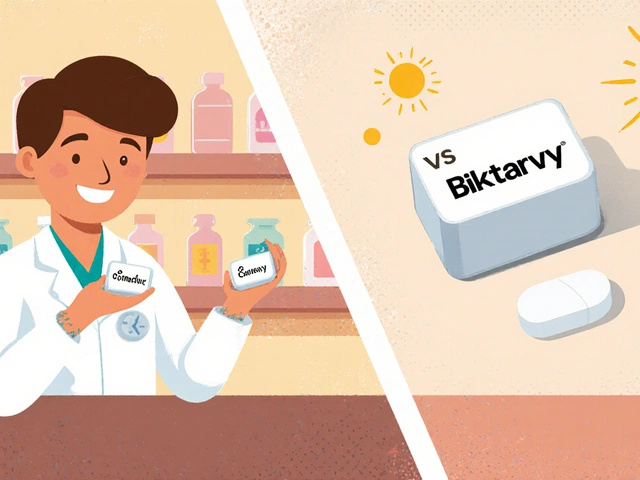naproxen: What You Need to Know
When working with naproxen, a non‑steroidal anti‑inflammatory drug (NSAID) that eases pain and inflammation. Also known as Aleve, it’s commonly used for arthritis, menstrual cramps, and sore muscles. Compared with ibuprofen, naproxen stays in the body longer, which can mean fewer daily doses. In contrast, aspirin works best for blood‑thinning and heart‑health goals, not everyday pain relief. Understanding these differences helps you pick the right over‑the‑counter option for your situation.
Key Things to Watch When Using Naproxen
First, dosing matters. The typical adult dose is 220 mg every 8‑12 hours, never exceeding 660 mg per day unless a doctor says otherwise. Taking it with food or milk can reduce stomach upset, an issue many NSAIDs share. Speaking of stomach, naproxen belongs to the broader class of NSAIDs that can irritate the lining of the gut, especially if you have a history of ulcers. If you’re on blood thinners, antidepressants, or other pain meds, watch for drug interactions – naproxen can increase bleeding risk when combined with those drugs.
Second, who should avoid it? Kids under 12 usually don’t use naproxen unless a pediatrician prescribes it. Pregnant women in the third trimester should steer clear because NSAIDs can affect fetal blood flow. People with severe kidney or heart failure also need a doctor’s green light, as naproxen can strain those systems.
Third, look out for side effects beyond stomach pain. Common complaints include headache, dizziness, or mild rash. Rare but serious signs are sudden swelling, shortness of breath, or blood in the stool – they require immediate medical attention. If any of these pop up, stop the medication and call your provider.
Fourth, consider cost and accessibility. Many online pharmacies list cheap generic naproxen tablets, and the same principles used in the "Buy Cheap Generic" posts on our site apply here: compare prices, check pharmacy credentials, and use discount codes when available. You’ll find the same safety checks that apply to generic lisinopril, Plavix, or Paxil are useful for naproxen too.
Fifth, think about alternatives if NSAIDs aren’t right for you. Our "Top Natural Alternatives to Aspirin for Effective Pain Relief" article explores herbs like willow bark, turmeric, and ginger, which can offer mild anti‑inflammatory benefits without the ulcer risk. For short‑term relief, over‑the‑counter acetaminophen works well for headaches but doesn’t reduce inflammation like naproxen does.
Finally, remember the pharmacy side of things. If you ever need to transfer a naproxen prescription to a new pharmacy, the "Switching Pharmacies" guide walks you through the exact details you’ll need: your full name, date of birth, prescribing doctor’s info, and the exact medication name (including strength). This step‑by‑step process makes sure you stay stocked without interruption.
All these points—dose, safety, cost, alternatives, and pharmacy logistics—create a complete picture of how naproxen fits into everyday health management. Below you’ll find a curated list of articles that dive deeper into each of these areas, from drug‑interaction checklists to buying generics online, so you can make informed choices and keep pain under control.

Tylenol vs Pain Reliever Alternatives: Detailed Comparison
A side‑by‑side look at Tylenol versus ibuprofen, aspirin, naproxen and other pain relievers, with safety tips and a practical buying checklist.
Read More




